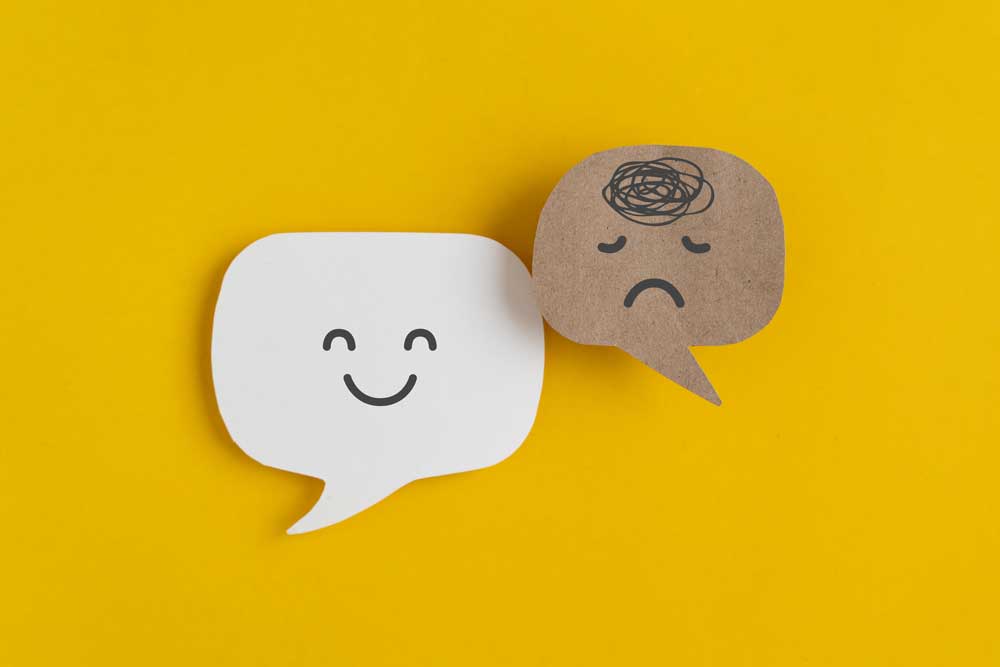Health isn’t simply the ‘absence of illness’. The term refers to a state of complete social, physical and mental well-being. Among these pillars, ‘mental health’ has unfortunately been neglected and highly stigmatised over the year. The topic has been shown and discussed in such a negative light, that for centuries people have refrained from coming forward and talking about it openly, for fear of judgement.
Thankfully, with time and awareness, more and more people have become sensitised about the importance of mental health, but there is still a long way to go.

It’s time that people look at this important issue differently. Some steps that can enable a real breakthrough around the ongoing stigma are:
1. Treat mental and physical health equally: The first step is changing the existing mindset. Stop considering mental health issues as abnormal. Our mind/brain is very much part of our body and it’s natural for us to have occasional problems, just like with any other physical organ. Nanavati Max Hospital released an article stating 20 per cent of the Indian population is afflicted with mental health struggles. Various other factors that lead to deteriorating mental health are lack of physical activity, substance abuse, poor nutrition, and irregular sleep which can impair an individual’s productivity and ability to function on a daily basis. Through all of this, it's very clear that the medication or treatment for these symptoms is mandatory.
2. Be vocal about how you feel: Don’t keep things to yourself, if something is disrupting your ability to function normally, as well as your mental peace. Cast off the shame and seek help from a therapist, healer or an expert. Be open about exactly what you are going through. Even if you don’t have a mental illness, encourage someone else who may be going through one to speak up. Mental stress leads to severe depression and anxiety, and in most cases cannot be dealt with alone. The earlier one opts to seek medical help, the faster the recovery.
3. Create awareness and educate yourself and others: If your current lifestyle is demanding and stressful, it is likely to be the cause of your anxiety or depression. Read up and seek solutions from experts. Keep yourself aware about the symptoms, repercussions and remedies associated with various mental health problems.

4. Stay strong and don’t let the stigma lead to self-doubt: Don’t get swayed by others’ judgements. Mental illness in no way makes someone inferior to others. It’s nothing to be ashamed of. Embrace the problem and acknowledge the fact that this problem requires a solution. Stay focussed on your own wellness goals, rather than letting the outside world dictate your path.
5. Avoid going into isolation: If you’re aloof and refusing to socialise, it can trigger feelings of loneliness, fear, abandonment, and being different from others. Human beings are social animals. In order to feel better, one definitely needs a community around that cares and looks out for you. There is no need to pretend you are strong when you feel otherwise.
6. Be extra careful and empathetic around people who are struggling: Avoid using politically incorrect words like ‘mad’, ‘psycho’ or ‘crazy’, even while joking. Discourage everybody else who does so as well. You never know what might trigger their distress. Use every single opportunity to encourage and support them by being a good listener and extending other support that they may require.

7. Encourage medical help: This is the best and safest of all solutions. Seeking medical advice should be encouraged. In fact, it should become the norm. Visiting a counsellor or a therapist doesn’t have to wait until the situation hits rock-bottom; rather it should be normalised as a mandate.
8. Become an advocate for change: Draw from your reserves of courage and speak up! Take a stand against bullying, discrimination and other behaviours that become the reasons for people to feel traumatised and depressed. Just one thoughtful action can become the reason for someone’s healing journey.